Background
Sidney Coe Howard was born on June 26, 1891, in Oakland, California, United States. He was the son of John Lawrence, the owner of a steamship line, and Helen Louise (Coe) Howard, a musician.

Sidney Howard
University of California, Berkeley, CA, United States
In 1915, Howard received a Bachelor of Arts from the University of California in Berkeley.
Harvard University
Howard received a Master of Arts from Harvard University in 1916.
Sidney Howard
Sidney Howard
Sidney Howard











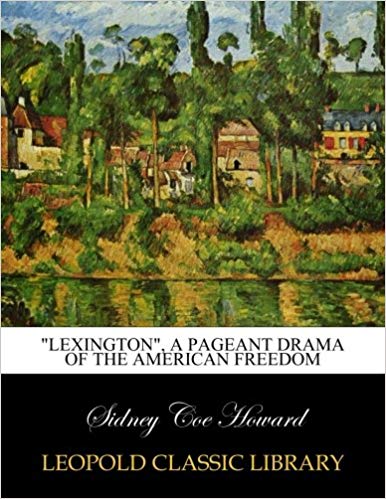
(The Americas were settled by people migrating from Asia a...)
The Americas were settled by people migrating from Asia at the height of an Ice Age 15,000 years ago. There was no contact with Europeans until Vikings appeared briefly in the 10th century, and the voyages of Christopher Columbus from 1492. America's Indigenous peoples were the Paleo-Indians, who were initially hunter-gatherers.
https://www.amazon.com/Lexington-pageant-drama-American-freedom/dp/B00YCXEJ08/ref=sr_1_1?keywords=Sidney+Howard%2C+Lexington&qid=1582549219&sr=8-1
1925
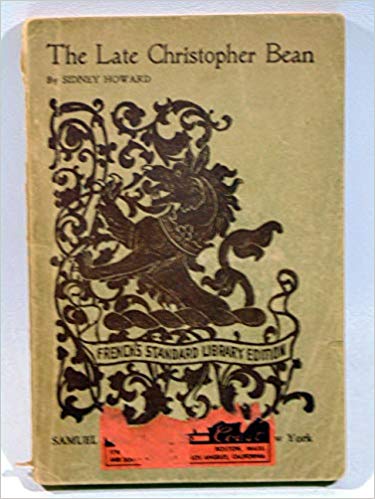
(A comedy play manuscript for use in college or high schoo...)
A comedy play manuscript for use in college or high school theater clubs.
https://www.amazon.com/Late-Christopher-Bean-Comedy-Three/dp/B000E2B1SY/ref=sr_1_1?keywords=Sidney+Howard%2C+The+Late+Christopher+Bean&qid=1582550767&sr=8-1
1933
playwright screenwriter translator
Sidney Coe Howard was born on June 26, 1891, in Oakland, California, United States. He was the son of John Lawrence, the owner of a steamship line, and Helen Louise (Coe) Howard, a musician.
In 1915, Howard received a Bachelor of Arts from the University of California in Berkeley, and a Master of Arts from Harvard University in 1916.
Howard's literary aspirations became apparent when the future dramatist was only nineteen years old. Recovering in a sanatorium from tuberculosis and motivated by the isolation' of this experience, Howard first began to write seriously as a diarist. While studying at the University of California - Berkeley, Sidney edited the literary periodical, Occident. Also, during his time at Berkeley he acted a little and wrote his first play, The Son of Spain, which was eventually produced as a pageant for the artists’ colony in Carmel. Over the course of his career, Howard worked as a journalist, dramatic translator, short-story writer, and screenwriter, but his first love was always the stage play. He adapted, translated, and wrote more than twenty-five plays before his life was cut tragically short by a farming accident in 1939.
His Pulitzer Prize-winnig play They Knew What They Wanted turned down sixteen times by producers before it was finally produced by the Theater Guild in 1924. The play later became a film and Frank Loesser’s musical adaptation The Most Happy Fella set the lives of Howard’s characters to music. After serving in the American Ambulance Corps and as a captain in the U.S. Army during World War I, Howard embarked on a career in journalism. He joined the staff of Life magazine and eventually became its literary editor. Over the next few years he contributed articles to such publications as Colliers, New Republic, and Hearst's International Magazine. He regularly appeared in periodicals throughout the 1920s, and in the late 1920s and early 1930s, discussed Hollywood and the motion picture industry in the pages of the New York Tunes.
A realistic practitioner of his art and a strong spokesman for the profession, he was elected president of the Dramatists' Guild of the Authors' League of America in 1935, serving in the crucial years when a new basic agreement was hammered out between playwrights and producers. In 1938, Sidney, in partnership with Maxwell Anderson, S. N. Behrman, Elmer Rice and Robert E. Sherwood, formed the Playwrights' Company, pooling their dramatic and financial resources to produce their own plays independently.
Howard was proficient in Spanish and French and translated a series of European plays for the American stage. First among these plays was Howard's second professional dramatic production, S.S. Tenacity, a translation and adaptation of Charles Vildrac’s Le Paquebot Ténacité. Though these adaptations were undertaken to generate income and were infrequently as successful as Howard’s original works, they nevertheless established him as the most adept translator of foreign works of his time. Howard not only made these foreign dramas accessible to English-speaking audiences, but he also took a cue or two from their authors, particularly Vildrac, in writing his own plays.
As a screenwriter, Howard was responsible for more than a dozen titles, including his adaptations of two Sinclair Lewis novels for the silver screen, Arrowsmith and Dodsworth. But, the high point of Howard's Hollywood career has to be his screenplay adaptation of Margaret Mitchell’s Gone with the Wind.
Remembered as a prolific and talented playwright of his day, Sidney Howard is widely admired for more than two dozen plays produced in New York in the 1920s and 1930s. As a dramatic translator, he brought many foreign plays to the American stage. Though his theatrical projects were more numerous, he is also remembered as a competent short-story writer, nonfiction author, and Hollywood screenwriter with a flair for verbal sophistication.
Howard was established as a prominent talent in American theater by his play They Knew What They Wanted Howard, that received a Pulitzer Prize in 1925. By the end of his career Howard had earned the distinction of being one of the most prolific dramatists of postwar American theater. Also, his screenplay, Gone with the Wind was awarded an Academy Award in 1940, one year after his death.
Shortly after his death his colleagues at the Playwrights Company founded in his honor the Sidney Howard Memorial Award. The award consisted of a prize of $1500 given to a young playwright without notable successes who had shown promise in a New York production. Howard was posthumously inducted into the American Theater Hall of Fame in 1981.
(The Americas were settled by people migrating from Asia a...)
1925(A comedy play manuscript for use in college or high schoo...)
1933Howard was a member of the board of directors of the American Civil Liberties Union, American Academy of Arts and Letters, and the National Institute of Arts and Letters.
Quotes from others about the person
"Howard is a major writer of social drama in a line of development leading from James A. Heame to Tennessee Williams. A potent force in American drama, his best plays transcend the limitations of his contemporary drama and reveal something essential about the human condition."
In 1921, Howard married Clare Eames, an actress, but they divorced in 1927. In 1931, he married Leopoldine Blaine Damrosch. From his first marriage Howard had one daughter, Jennifer Howard, and three children from the second one.
14 September 1849 - 22 January 1914
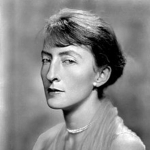
August 5, 1894 – November 8, 1930
Clare Eames was an American actress and stage director.
10 March 1899 - 1 December 1964
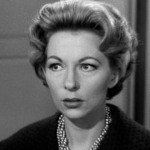
March 23, 1925 – December 14, 1993
Jennifer Howard was an American stage and film actress active between the mid-1940s and early 1960s.
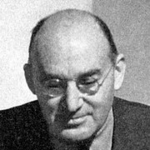
June 9, 1893 – September 9, 1973
Samuel Nathaniel Behrman was an American playwright, screenwriter, biographer, and longtime writer for The New Yorker.
December 15, 1888 – February 28, 1959
James Maxwell Anderson was an American playwright, author, poet, journalist and lyricist.
September 28, 1892 – May 8, 1967
Elmer Rice, born Elmer Leopold Reizenstein, was an American playwright.
April 4, 1896 – November 14, 1955
Robert Emmet Sherwood was an American playwright and screenwriter.
